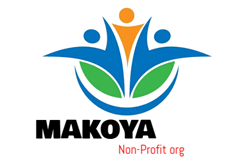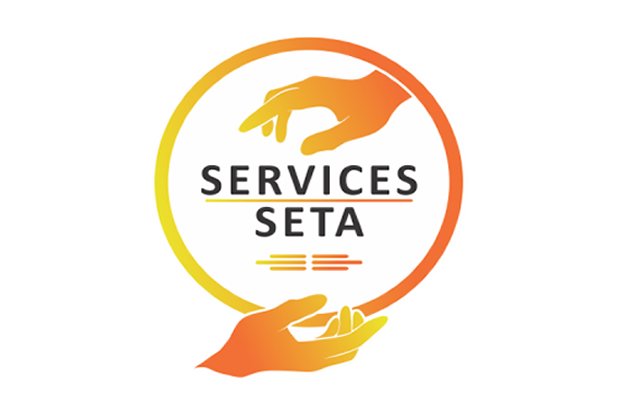
CETA skills programme opportunities
The South African economy is a vibrant place, always changing and needing new talents. Many people want to learn new things, improve old skills, or start a fresh career. Government programs help greatly here to close skill gaps. The Construction Education and Training Authority (CETA) is a big part of this. They offer important skills development programs. These programs help South Africans get the abilities needed to do well in the building sector and other areas.
This article will show you the many CETA skills programme opportunities open in South Africa. We will explain who can apply, how to apply, and what good things can come from joining. Maybe you want to move up in your job, or your company wants to make its team better. Knowing about these programs is the first step to getting valuable training and growth.
Understanding the CETA Skills Programme Framework
What is CETA and its Mandate?
CETA is a body set up by law in South Africa. Its main goal is to improve skills in the construction world. This group ensures that South Africa has enough trained workers for big projects. CETA plays a key role in building our nation’s future through skilled people.
CETA helps connect learners with real-world job needs. It sets standards for training programs. This makes sure the skills people learn are truly useful for the construction industry. The organization is vital for growing a skilled workforce.
Types of CETA Skills Programmes Offered
You can find many types of CETA skills programmes. Learnerships offer on-the-job training with real work experience. Artisan development programs train people to become skilled tradespeople, like plumbers or electricians. Short courses give quick boosts in specific skills for a trade.
Some specialized training is also available for unique roles. These programs help you gain a formal qualification. Each type of training aims to meet different learning needs. They all prepare you for a good job in the construction sector.
How CETA Programmes Address South Africa’s Skills Gaps
CETA programs are made to fix the specific skill shortages in South Africa. The construction industry always needs new skills. CETA looks at what jobs are needed most. Then it designs training to match those needs.
This way, CETA helps more people find work. It also makes sure building companies have the right staff. This close link between training and industry needs helps everyone. It means training is always relevant and helpful for the job market.
Eligibility Criteria for CETA Skills Programmes
General Eligibility Requirements
Anyone thinking about CETA skills programmes needs to meet certain rules. You must be a South African citizen. There is often an age limit for some programs, but not all. Most programs ask for a certain school level or an NQF (National Qualifications Framework) level.
You might need to be unemployed to join some learnerships. Other programs are open to people already working. It is important to read the rules carefully for each CETA opportunity. This ensures you pick the right fit for your situation.
Useful Links:
Specific Programme Prerequisites
Different CETA skills programmes have unique entry needs. For example, a specialized welding course might ask for some past work in metalwork. An advanced bricklaying program could require a basic building certificate first. Always check the specific needs for the program that interests you.
Some training might need certain subjects passed in high school. This could be maths or science for technical roles. Understanding these specific rules upfront saves time. It also helps you prepare any extra documents needed.
How to Verify Your Eligibility
Want to confirm you meet the criteria for a CETA skills programme? The best place to start is CETA’s official website. They list all the current programs and their rules there. You can also find contact details to ask specific questions.
Many training providers working with CETA can also guide you. They help explain what each program needs. Don’t be afraid to reach out and ask if you are unsure. Verifying your eligibility early makes the application process smoother.
Navigating the CETA Skills Programme Application Process
Finding Available CETA Programmes and Opportunities
To find current CETA skills programmes, start by looking online. CETA’s official website often lists open opportunities. Other SETA (Sector Education and Training Authority) portals also show available training. Industry groups and building companies sometimes announce programs.
Keep an eye on government news and job boards too. These places can have new program listings. Many training centers that work with CETA also advertise when they have open spots. Being active in your search can help you discover chances quickly.
Step-by-Step Application Guide
Applying for a CETA skills programme follows a clear path.

Next, you will gather and send in your needed documents. After that, some programs have interviews or quick tests. These steps help CETA find the best candidates. Take your time with each stage to ensure your application is strong.
Essential Documents and Information Needed
When you apply, you will need several key papers. Always have a copy of your South African ID. You’ll also need your school certificates or any other proof of education. A simple CV that lists your work history is often required.
Proof of where you live, like a utility bill, might also be asked for. Keep all your documents organized. Having them ready makes the application quick and easy. Missing papers can slow down your chance to join a CETA program.
Benefits of Participating in CETA Skills Programmes
Enhanced Employability and Career Advancement
Getting CETA-certified skills can greatly improve your job chances. Employers value these qualifications. You become more appealing for open roles in the construction sector. These new skills can also help you get promotions where you already work.
Many CETA graduates find new career paths they never thought possible. From site worker to supervisor, the steps are clear. This training can open doors to better pay and more responsibility. It truly builds a foundation for your future career.
Access to Stipends and Financial Support
A big benefit of many CETA skills programmes is the financial help. Participants often receive a stipend. This money helps cover daily living costs, like transport and food. This support makes it easier to focus on learning.
It takes away the worry of how you will manage while training. This financial aid ensures that more people can access valuable education. It lets you invest in your future without a heavy money burden.
Contribution to National Development and Economic Growth
When you join a CETA program, you help South Africa grow. More skilled people mean more jobs get done. This helps build better roads, homes, and public places. It makes the country stronger and richer.
Your learning helps reduce poverty and create opportunities for others. By gaining new skills, you become a part of the nation’s progress. You directly help push South Africa’s economy forward. This makes your participation truly meaningful.
Real-World Impact and Success Stories
Case Studies of CETA Programme Graduates
Consider the story of Sipho, who completed a CETA bricklaying learnership. He started as an assistant and now runs his own small construction crew. There’s also Thandi, who used CETA training to move from a basic worker to a respected site supervisor. These are not just stories; they are real people who found success.
Many CETA graduates have gone on to start their own businesses. Others have secured stable, well-paying jobs. These examples show the practical power of CETA skills programmes. They turn potential into real-world achievement.
Impact on the Construction Industry
CETA-funded training has greatly helped the construction industry. Skilled workers lead to better quality projects. They also make work sites much safer. With well-trained teams, building jobs are completed faster and more smoothly.
New ideas and smart solutions often come from a skilled workforce. CETA training helps the industry stay modern and effective. This means better buildings and infrastructure for all South Africans. The impact is seen in every new structure that goes up.
Expert Opinions on CETA’s Effectiveness
Industry leaders often speak highly of CETA’s work. A director from a large building firm noted, “CETA is key to our future workforce.” An expert on economic growth said, “Their programs directly boost jobs and output.” These comments show that CETA’s efforts are widely recognized.
Officials from other SETAs also agree on CETA’s value. They see how CETA helps fill crucial skills gaps. These expert views confirm the positive effect CETA has on South Africa’s economy and its people.
Actionable Tips for Aspiring CETA Participants
Proactive Job Seeking and Networking
Don’t wait for jobs to find you after your CETA training. Actively look for work while you are still learning. Talk to people in the building field. Attend industry events and workshops if you can. Make connections with potential employers or fellow tradespeople.
Networking can open doors to hidden job openings. Many jobs are found through people you know. Your CETA skills make you valuable. Being proactive helps you land a job quickly after graduation.
Continuous Learning and Professional Development
Your learning journey should not end with your CETA skills programme. The job market changes fast. New tools and methods come out all the time. Keep reading about your field. Look for short courses or workshops to update your abilities.
Staying current makes you more useful to employers. It also keeps your career moving forward. Lifelong learning ensures you remain competitive. It is a key to long-term success in the construction sector.
Leveraging CETA Skills for Entrepreneurship
The skills you gain from CETA can be a strong base for starting your own business. You might offer specialized building services. Or you could become an independent artisan in your trade. Imagine being your own boss.
Many successful entrepreneurs began with solid practical skills. CETA training gives you the confidence and ability to serve clients directly. Think about how your new skills can solve problems for others. This can turn into a profitable venture.
Conclusion: Seize Your Future with CETA Skills Programmes
CETA skills programmes offer a true path forward for many South Africans. They are not just about learning; they are about opening doors to better jobs and brighter futures. This training helps you get the skills needed to thrive in the growing construction sector. It also plays a vital part in building a stronger, more prosperous South Africa.
Investing in a CETA program is an investment in yourself. It promises improved job chances, financial support, and a role in national growth. Don’t let this chance pass you by. Explore the opportunities available, find a program that fits your goals, and apply today. Your career future is waiting to be built.




